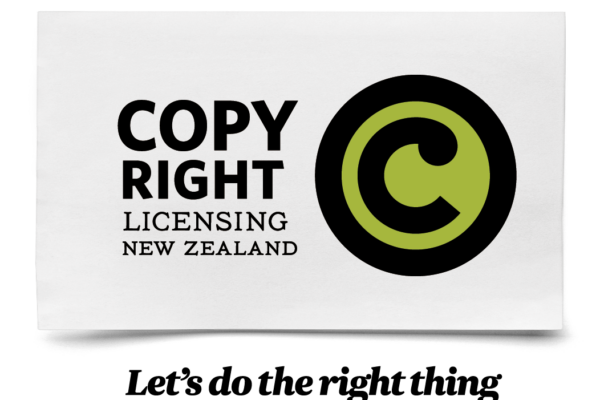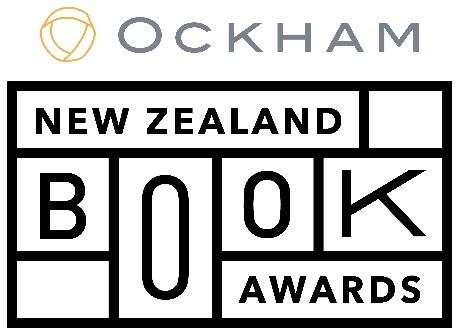FROM STUFF

Wellington author Rose Lu’s book All Who Live on Islands received critical acclaim when it came out last year. Photo; Ross Giblin
But in the past decade or so, New Zealand’s Chinese diaspora – from Kiwi-born Chinese, whose families arrived as long ago as the earliest Pākehā, to recent immigrants – is taking back the power by writing their own stories. They are no longer striving to keep their heads down and completely assimilate. Instead, these writers are sharing their own truths unapologetically and unequivocally, and doing so without referring to market gardens, fish’n’chip shops, “tiger parenting” or other tired tropes. In doing so, they are redefining on their own terms, one story at a time: the immigrant narrative.
This new wave of writers, if they choose to address issues of ethnic identity at all, are examining it from all angles, not just the duality of being Chinese and a New Zealander. Writers like Rose Lu, whose first essay collection All Who Live on Islands takes readers on a ramble through yoga, pot smoking, and shopping at the “poor people’s shop”, through to deeper questions around gender, sexuality and mental illness. Then there’s international Sarah Broom Poetry Prize award-winner Nina Mingya Powles, who in her poem Yellow Fragments calls out racist stereotypes: “American film directors who confuse modern Asian cities for their post-apocalyptic neon sex fantasies.”
The truths these writers expose through their work speaks to a generation comfortable in their own skin, but who also no longer wants to just survive. The new Chinese-NZ writing is very much about being seen, heard and understood for who you are, and not just who you might represent.
To Victoria University Press (VUP) publisher Fergus Barrowman, who’s been in the industry for 35 years, this new scene is not just exciting but the sign of a country coming into its own.
“Cultural space in New Zealand is now a more mature and accurate representation of life in New Zealand,” he says. “New Zealand has lagged behind some other countries, in particular Australia, but that’s because we’re a small country with a small population. Within that, the Chinese community has been proportionately quite small until recent years. A thing that often shows up in immigration studies is first-generation immigrants are often motivated not to display their difference and get on with establishing themselves in life. It’s the next generation, or even the one after that, who discovers the need or passion for more.”
One thing Western audiences can find it difficult to get their heads around is just what is meant by the Chinese diaspora. There is still a tendency for anyone who looks Chinese to be perceived as part of a homogenous group. In reality, the Chinese diaspora spreads from southeast to east Asia, and into other Western countries such as the US, UK and Australia. Each of these communities will have important differences in culture, background and dialects. To speak of or identify someone as simply being “Chinese” is about as useful as referring to groups of people as “Caucasians” or “Europeans”.
Lu’s family is from mainland China, but she’s grown up in New Zealand. To her, the stories she tells are universal, perhaps Kiwi, but should not be seen as representative of all Chinese.
“Everyone in some situation feels like they don’t fit in. I do feel pressure not just from others but from myself to tell the stories of what I observe in Asian communities. Often when I speak to Chinese or Asian New Zealanders, it means so much to them to be represented in some way in a book. At the same time, I’ve also had people tell me ‘how you describe growing up in Whanganui is how it feels growing up in South Auckland’.”

Playwright Renee Liang was one of few writers in the mid-2000s to highlight the Chinese Kiwi experience. Photo; John Rata.
Playwright Renee Liang speaks of the Chinese New Zealand literary scene as coming in waves, with herself falling into the middle wave and writers such as Lu, Mingya Powles, Chris Tse, Gregory Kan and Sharon Lam in the “young, cool Asian writer league”.
“When I first started writing [in the mid-2000s], I was one of the few people at that time to speak out about the Chinese Kiwi experience. It was my demographic that publishers were looking for, so I think my success has been to do with a combination of I was hungry for it, but also, I was one of the first. My work was also relatively palatable – not too threatening and not too angry.”
Liang speaks of her experience judging a national Asian short story contest in the early 2010s, meant to encourage more unpublished Asian writers to come out of the woodwork. One of the judging criteria was that stories had to be “Asian”.
“I mean… What does that even mean? Asia isn’t one homogenous culture. Even if we just limit it to writers of Chinese descent who have grown up in New Zealand, you have all the different migration patterns and countries, not to mention the food and languages.”
Liang is somewhat envious of the multilingual skills shown by emerging writers such as Lu and Powles, who can both read and write Mandarin and are able to mix Chinese characters into their writing. She feels it gives them access to spaces and stories that she herself can’t enter or fully understand without a translator. Powles, who calls herself “mixed-race Malaysian Chinese born in New Zealand”, says the decision to include Chinese characters was not conscious, but rather arose out of the fact that her family and therefore her life is multilingual.
“We speak a mixture of English, Mandarin, Cantonese and Hakka. So, I can’t avoid this in my writing; to write only in English and to mark out anything not using English in italics would feel wrong, out of place, and just not me. I can’t speak all these languages but still the sounds and cadences of them are inside me. In my next poetry collection, Magnolia 木蘭, many poems explore the process of re-learning Mandarin as an adult after having abandoned it when I was little. As I got older, I felt curious about it. I felt increasingly conscious that a part of myself was missing.”

ROBERT KITCHIN/STUFF Poet Gregory Kan had his first collection published in 2016..
For other writers like Tse, whose Chinese mother was born in Petone and whose father is from Hong Kong, it’s definitely a watershed moment for Chinese-NZ writers.
“I tweeted about it last year, about realising how many Chinese-NZ writers were in the line-up at festival events. It’s something I’ve never experienced before as an audience member or participating writer. When I started out – I did an undergrad degree in 2003 and a Master of Creative Writing in 2005 – there was no-one else. The only other Chinese writer I knew was Alison Wong and back then she hadn’t even published her first book.”

Poet Chris Tse is among the ‘‘young, cool Asian writer league’’. Photo: KEVIN STENT
If it’s true that a rising tide lifts all boats, then the conditions are currently favourable for more Chinese-NZ writers to enter the scene. Singaporean Chinese-NZer Gregory Kan, who has lived in New Zealand since his early teens, published his first poetry collection through Auckland University Press in 2016.
“I feel like there’s always been a demand for Chinese-NZ and immigrant Chinese narratives. There has always been a fascination among Western audiences for narratives of cultural otherness. I’m a recent immigrant. My family moved here, but Chinese people have been around in New Zealand for a long time. So those kinds of stories have always, I think, been popular with Western audiences. They’re very popular right now. But I worry that that popularity sometimes boils down to a fetishisation or exoticisation of these other cultures.”
Kan too speaks about the burden of expectation, the unspoken feeling that perhaps one is still silently being asked to speak for the experiences of an entire diaspora.
“I have mixed feelings about it. On the one hand these narratives are really important and the visibility of minorities and increasing that is always going to be important. But you also risk being reduced, tokenised or co-opted, so that’s a difficult tension to straddle.”
Where to next for Chinese-NZ writing? And what are organisations like the New Zealand Society of Authors (NZSA) planning to do to support this new literary scene?
NZSA president Mandy Hager says the organisation has been preparing for a generational shift for some time.
“Publishers like VUP have done a really great job in bringing some of the new writers through from their creative writing programmes and then taken care to promote them and their work. We also have youth mentorship, where young writers get the chance to work with an experienced writer for a set number of hours. And we’re looking to get prospective voices onto our board with our top priorities being Māori, Pasifika and youth. But I can see that with the population changing, an Asian perspective is something we’ll need to look at as well. It’s not about having an Asian person on board, but somebody who understands the needs and perspectives of a particular group.”
For more seasoned writers like Liang, there is a renewed sense of frustration that comes with still encountering the same old roadblocks when it comes to recognition.
“Even in [Prime Minister] Jacinda Ardern’s speeches about the arts, she’ll often mention support for Māori and Pasifika, which is obviously very important, but nothing at all about Asians. We’re often still invisible.”

VUP publisher Fergus Barrowman says the Asian-Kiwi literature scene is a sign of the country coming into its own. Photo: Rosa WoodsBarrowman acknowledges the industry has been “slow to understand” that perhaps it has not done quite enough over the years to support Asian writers, and that there needs to be “more active mechanisms” in place.
He was disappointed that Lu’s book, which has been extremely well-reviewed, was passed over at the recent Ockham New Zealand Book Awards. The shortlist had no Chinese-NZ or even Asian writers at all.
“I can’t speculate about what the judges were thinking, but I would love to have seen Rose’s book get some recognition in these awards and I’m disappointed it hasn’t. On the other hand, the reviews and word-of-mouth and sales have been excellent and are still growing, and that’s the real world, which in the long run is much more important.”
One of the ways Barrowman thinks the industry can support emerging Chinese-NZ writers is to keep open minds when reading submissions. He personally would also like to see more stories from older demographics, not just the young, hip crowd Liang has referred to.
“There is a tendency in publishing always to base your assumptions of what’s going to work based on what’s worked in the recent past. But I think New Zealand publishers are going to be very open in the next few years to Chinese New Zealanders and people of other backgrounds because we’ve seen the success and popular embrace.”
Perhaps the last word should be left to Lu, when asked whether she ever feels that she, somehow, has become the voice of a new generation.
“That’s weird. I don’t feel like I’m the voice of my generation of Chinese people because people have such different experiences. While that is very nice, it erases how diverse all our experiences are. The ‘voice of a generation’ is aspirational in some way, right? You have the Chinese model minority success story, but that also erases a lot of other types of experiences.
“Why always take the elite to be an example of success? All the writers I know are super young, so there’s no patch of grass to protect cause no-one’s that established. Half of the people I know can’t even make rent this week. It’s really hard for young people to have the time and resources to write, so if there’s one thing we can get support in, it should make it economically possible for us to write.”




